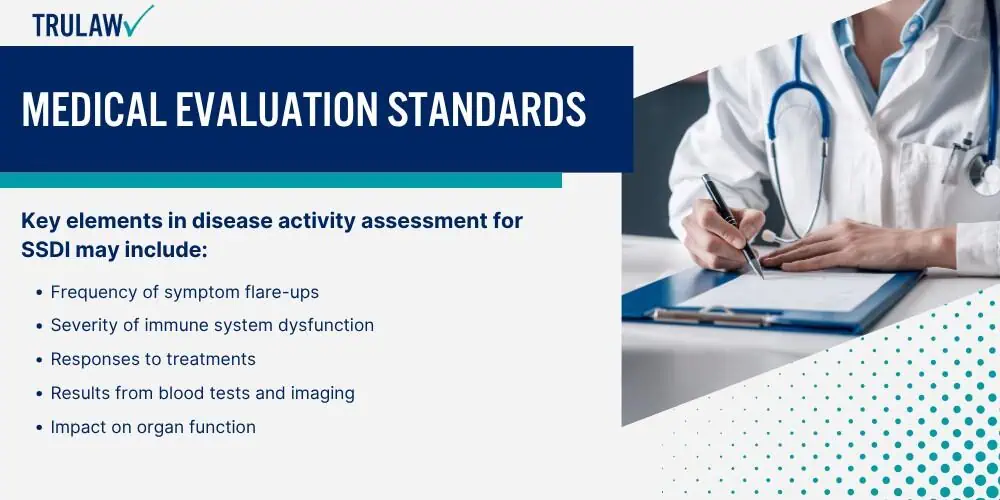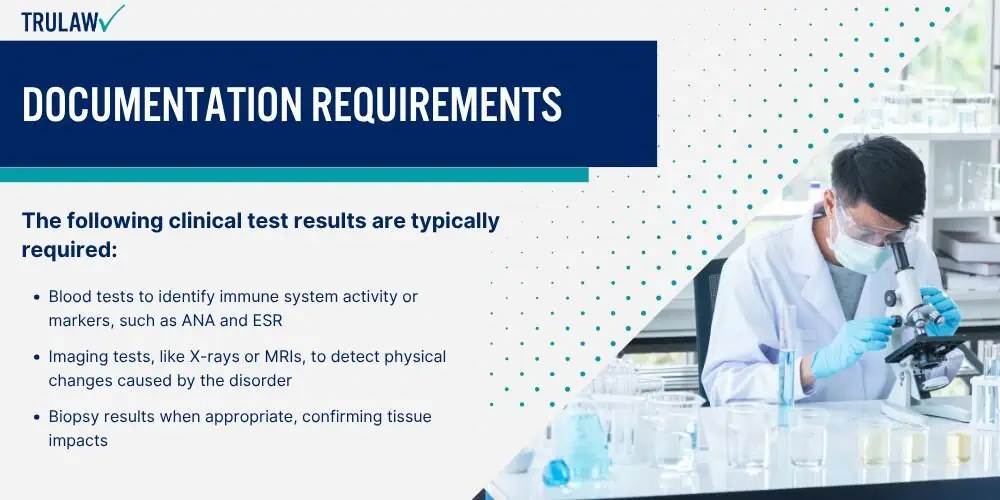The Social Security Disability Insurance (SSDI) program includes specific provisions and evaluation criteria for individuals with immune and autoimmune disorders.
These conditions, covered under the SSA’s Listing of Impairments section 14.00, require thorough medical documentation to establish the severity and functional limitations imposed by the disorder.

Individuals diagnosed with an immune system disorder may qualify for financial assistance if their condition impairs their ability to work, necessitating proper medical documentation and assessment of limitations related to the disorder.
Applicants must demonstrate how their condition hinders their ability to work through medical evidence and history.
Commonly evaluated conditions include systemic lupus erythematosus, systemic vasculitis, and immune deficiency disorders, among others.
The evaluation focuses on both the activity of the disease and its impact on the individual’s daily functioning.
Disease Activity Assessment
This involves documenting the frequency, duration, and intensity of symptoms, as well as their overall impact on health.
Medical practitioners often rely on a combination of clinical evaluation and laboratory tests to evaluate the level of disease activity.
This evidence helps Social Security determine whether the criteria under their specific listings, such as systemic lupus erythematosus (14.02) or scleroderma (14.04), are met.
Proper assessment ensures that the disorder’s current severity and expected progression are accurately captured, aligning with SSDI requirements.
Key elements in disease activity assessment for SSDI may include:
- Frequency of symptom flare-ups
- Severity of immune system dysfunction
- Responses to treatments
- Results from blood tests and imaging
- Impact on organ function
These elements are critical as they provide quantifiable data to showcase the ongoing challenges posed by the disorder.
For instance, frequent flare-ups documented over a consistent period can illustrate an inability to maintain stable health, which is indispensable for employment.
Additionally, the effect of treatments and medication response also help highlight the disorder’s manageability and lingering issues.
Accurate and comprehensive documentation of these factors aids in painting a full picture of the claimant’s condition for SSDI consideration.
Functional Impact Measurement
Functional impact measurement details how the autoimmune disorder affects various aspects of a person’s ability to perform work-related activities.
Social Security considers this in terms of physical, mental, and social functioning.
Tools to measure functionality include daily living assessments and specialized functional capacity evaluations, which objectively outline the extent of limitations.
This measurement helps establish a baseline of incapacity, demonstrating how health impairments hinder job performance and routine activities.
Factors affecting functional impact measurements typically include:
- Ability to perform daily personal care tasks
- Capacity to engage in social interactions
- Cognitive functions affected by fatigue or pain
- Physical limitations like mobility or dexterity
- Frequency of needing medical assistance or rest
For instance, severe fatigue or pain may limit one’s ability to engage in social activities or complete work assignments consistently.
The SSDI evaluation process relies heavily on these functional insights to justify awarding benefits, ensuring only those individuals significantly impaired by their disorder receive support.
Adequate documentation from healthcare providers substantiates these claims, elucidating the extent of impairment beyond clinical diagnosis.





